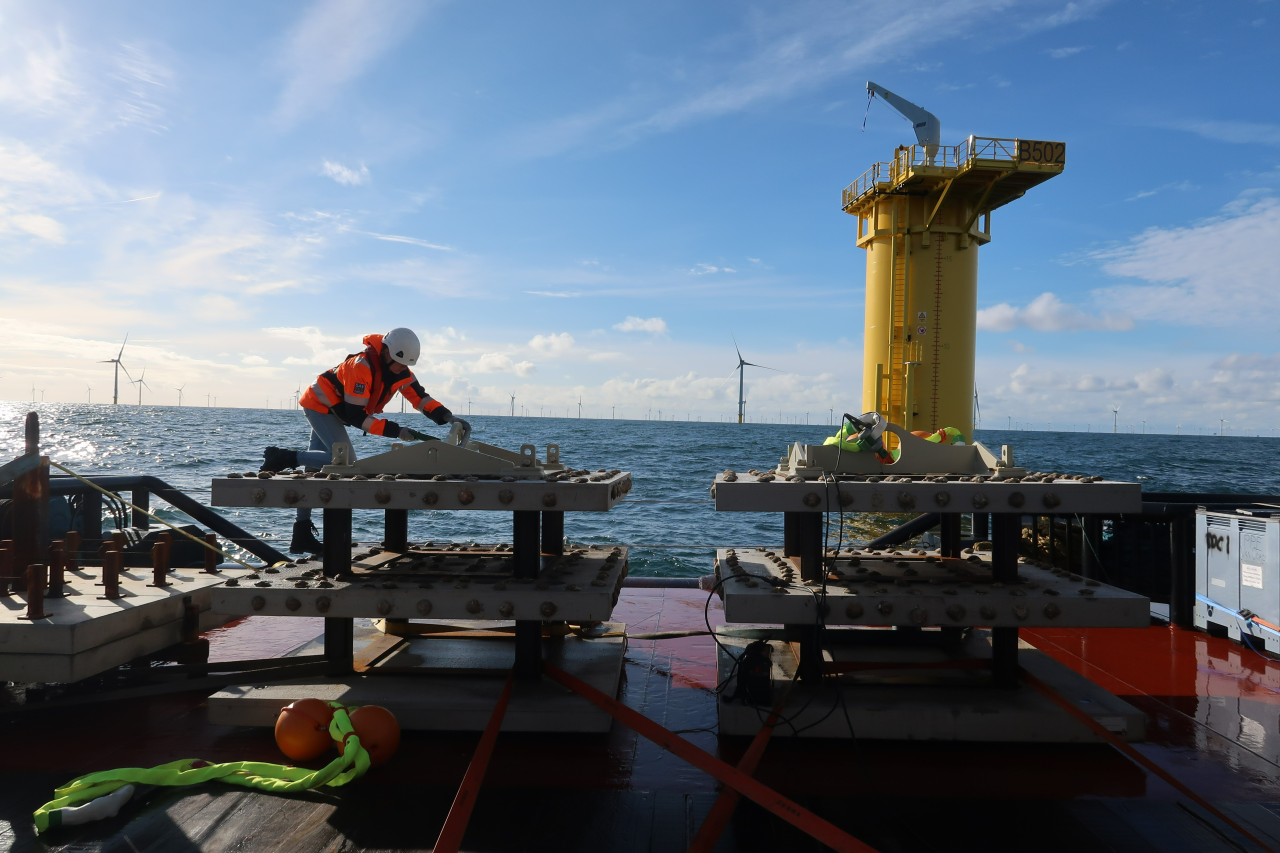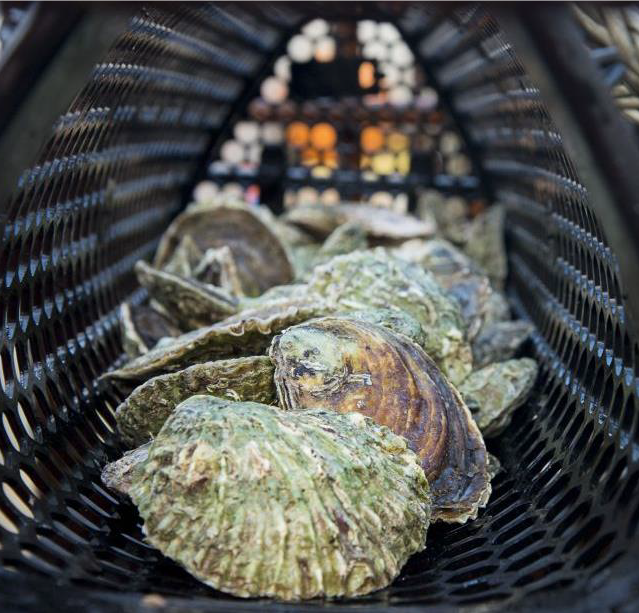Shellfish reefs function as a naturally growing climate adaptive barrier. Growing close to the surface, they decrease coastal erosion by trapping sediment and stabilising shorelines. Big areas of shellfish, like oyster reefs or mussel beds, can also absorb wave and wind energy, and therefore offer coastal protection.
Shellfish reefs
Impact beyond the food chain: shellfish increase water quality, offer coastal protection and boost species diversity.
Flourishing marine life in Offshore Wind Farms
In our approach to shellfish reef ecosystems, we currently focus on restoring oyster and mussel beds in Offshore Wind Farms (OWFs). Almost all natural reefs in European waters have disappeared due to overfishing, diseases and climate change. OWFs offer a unique opportunity to restore these ecosystems; the physical assets (e.g. monopiles and scour protection materials), as well as national regulations for OWFs, offer an opportunity to (re)introduce shellfish habitats.
We are testing innovative eco-designs for monopile scour protection and cable crossings, that boost biodiversity by attracting selected target species, and methods for rehabilitating European flat oyster beds. We do so in collaboration with energy companies, research institutes and universities.
With our approach we aim to restore and introduce shellfish habitats in OWFs, to boost species abundance, so that marine life will flourish!
The value of shellfish reef ecosystems
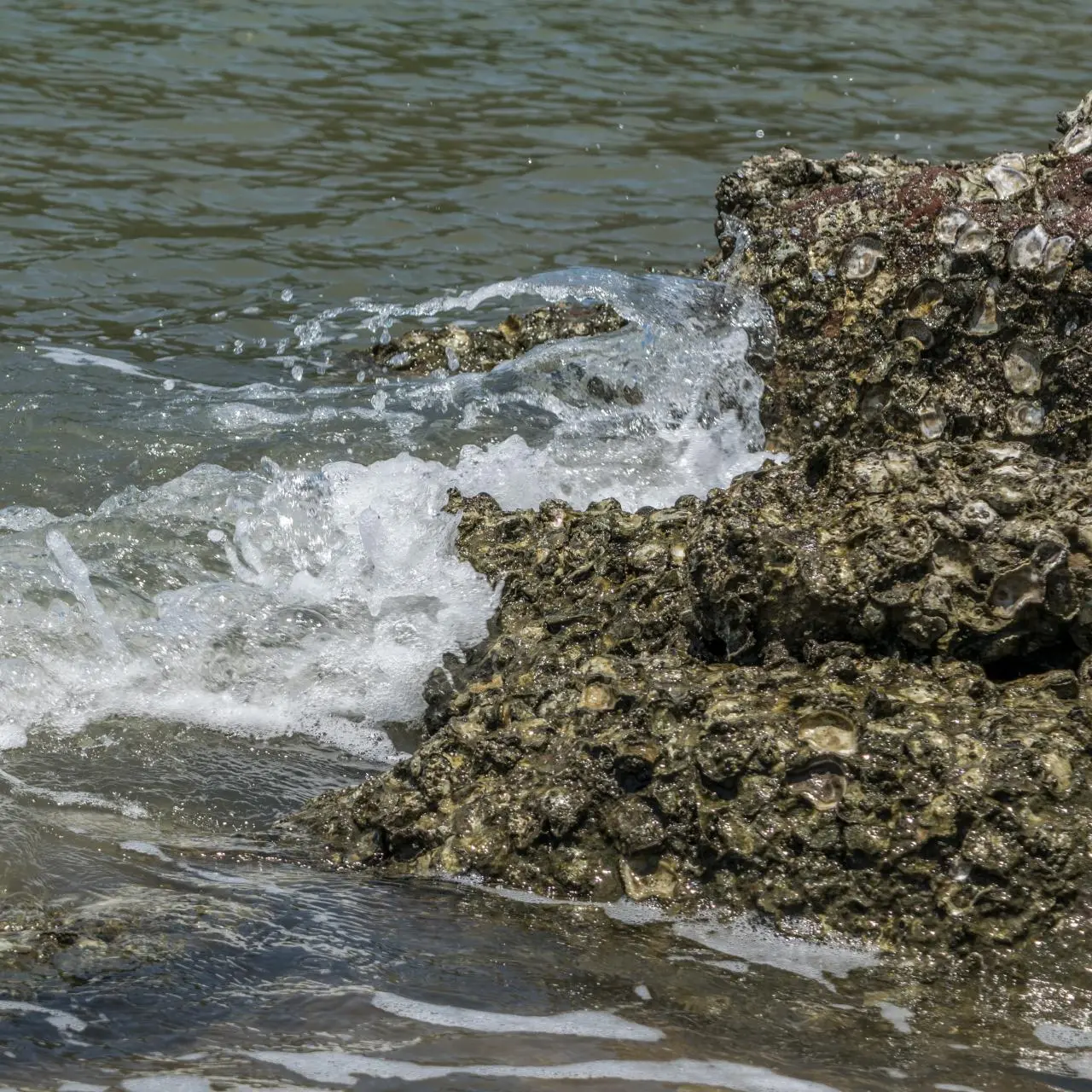
Coastal Protection
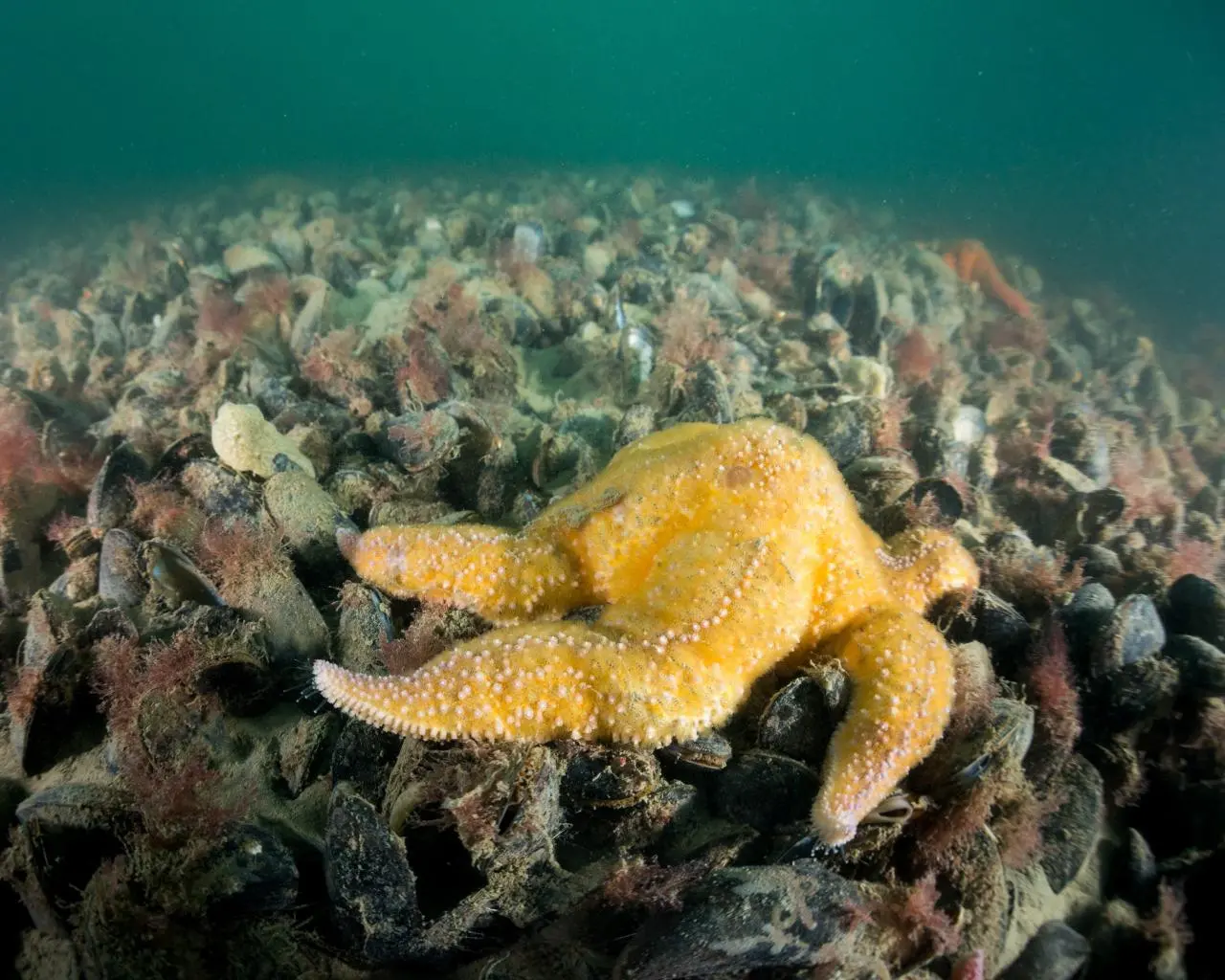
Biodiversity
Shellfish such as oysters and mussels create favourable habitat conditions for other species (e.g. sharks, rays, cod, sea bass and lobsters) by building reef structures. They extract excess nitrogen from oceans, preventing algal blooms and oxygen-depleted dead zones, creating perfect conditions for the increase of species abundance. Photo: Waardenburg Ecology – Udo van Dongen
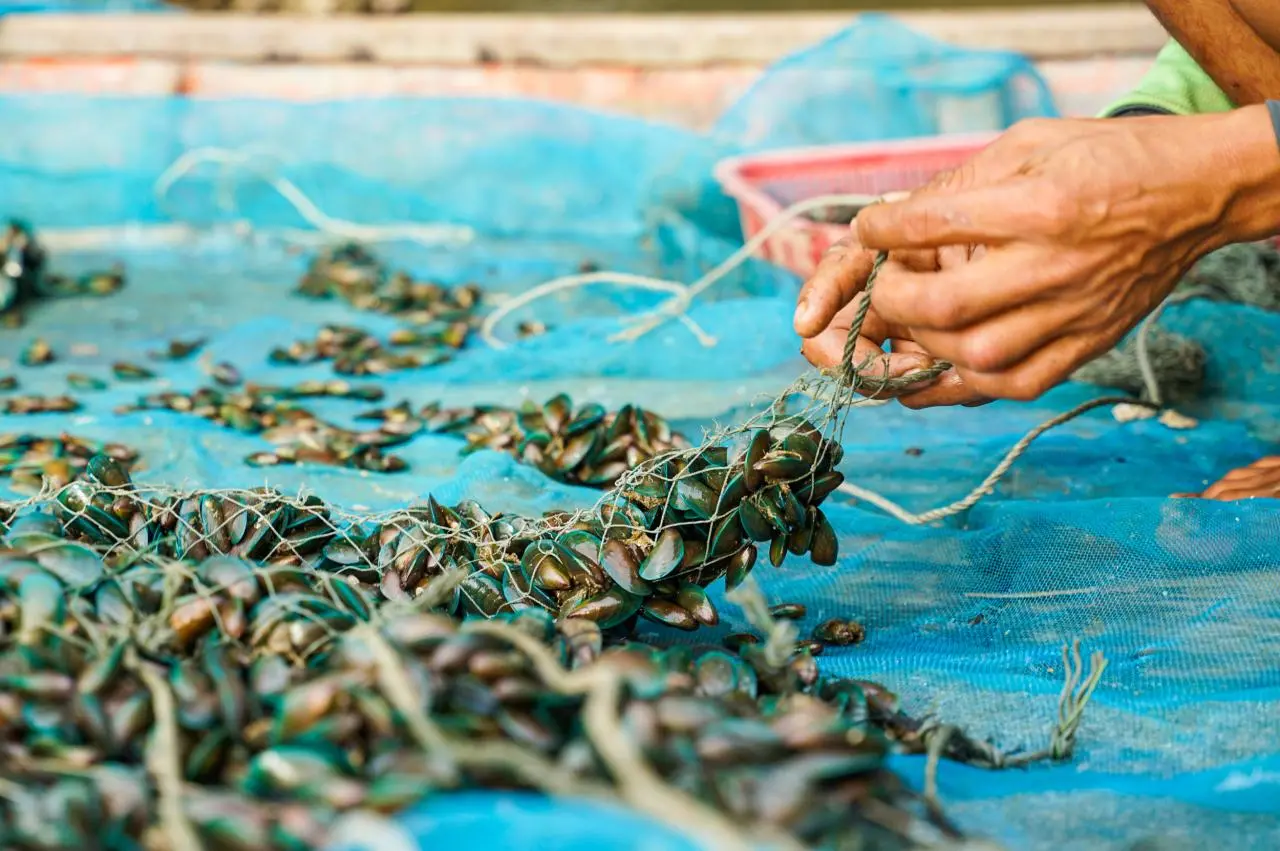
Local economy
Oyster and mussel beds attract and support many commercially valuable species, enhancing the local fishing industry. By itself, shellfish are a good source of income as well; they provide lime for building materials and are part of many diets worldwide.
Global natural oyster habitats
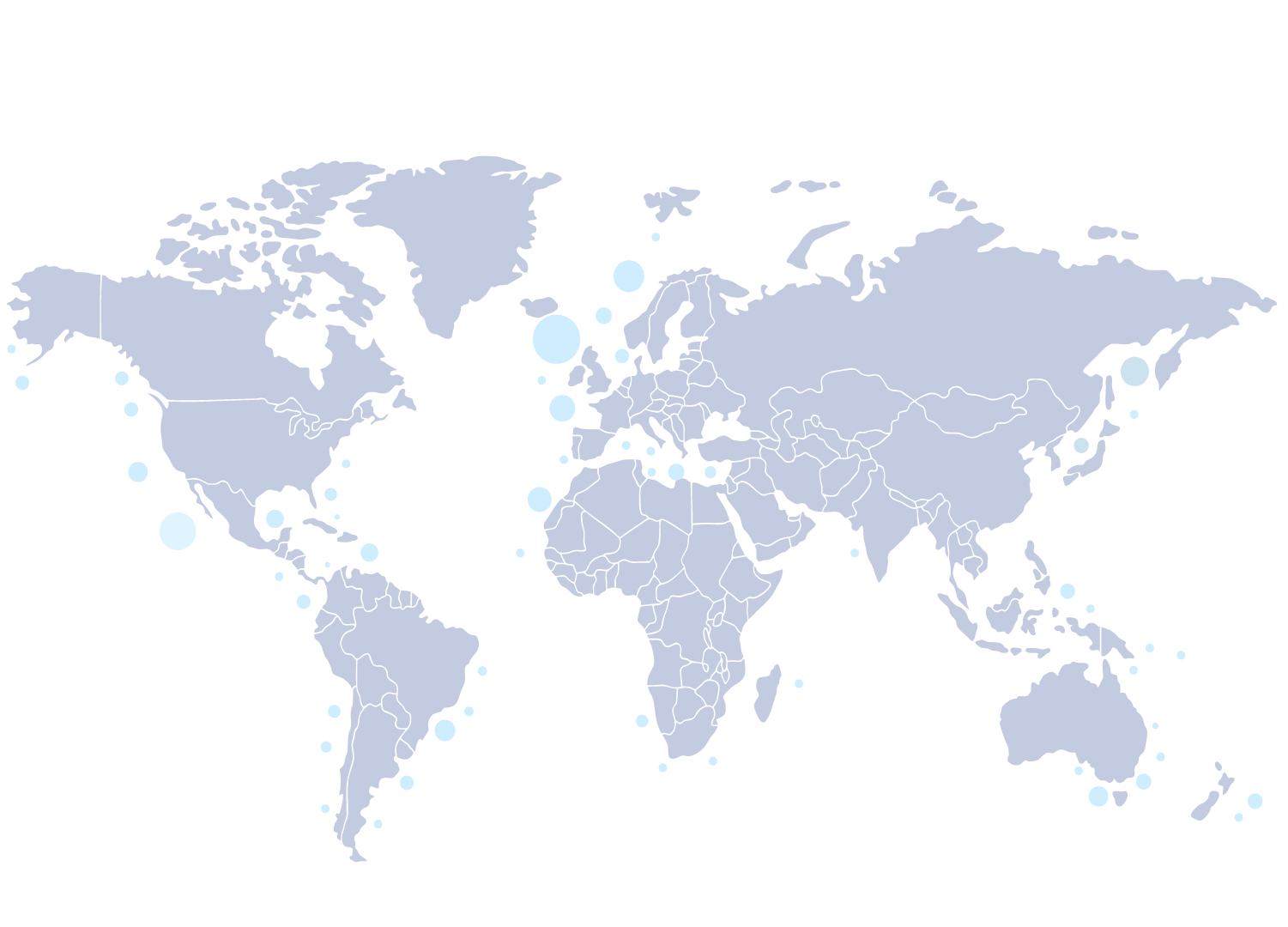
Flagship pilots North Sea
We are developing innovative methods to enhance biodiversity in OWFs in the North Sea. We perform the pilots in collaboration with renowned universities, research institutes, offshore wind developers and nature organisations. Our focus areas include:
- Rehabilitating European flat oyster reefs: we test the effectiveness of different types of substrates and outplacement methods (oyster broodstock cages, pre-settled structures, or loose) on local larvae settlement, health of the oysters and oyster reef growth.
- Increasing biodiversity using eco-scour protection: we test the effect of variations in rock type, grading, and positioning of the scour protection on the variety in species.
In collaboration with our knowledge partners, we monitor the growth, survival and reproduction rate of the oysters, the effect of our interventions on other sea life, and the effect of local hydrodynamic conditions.
